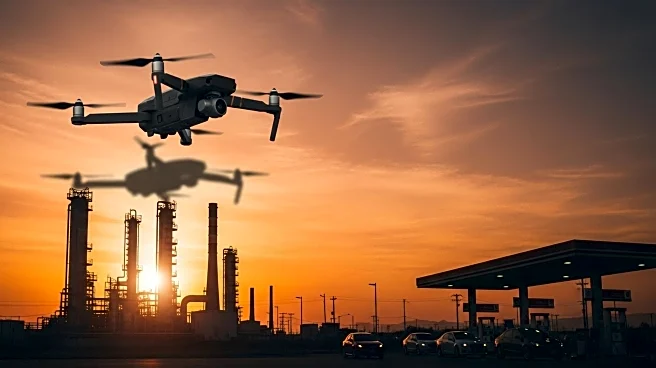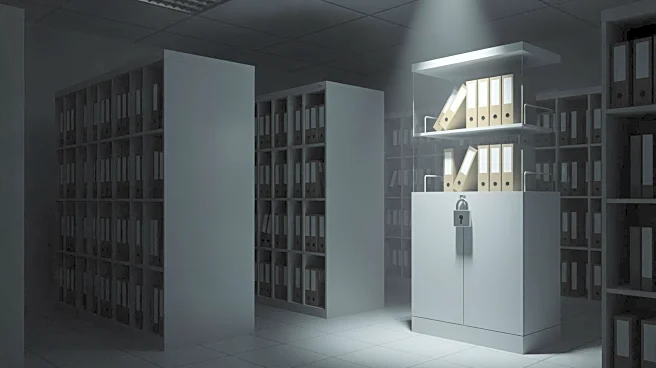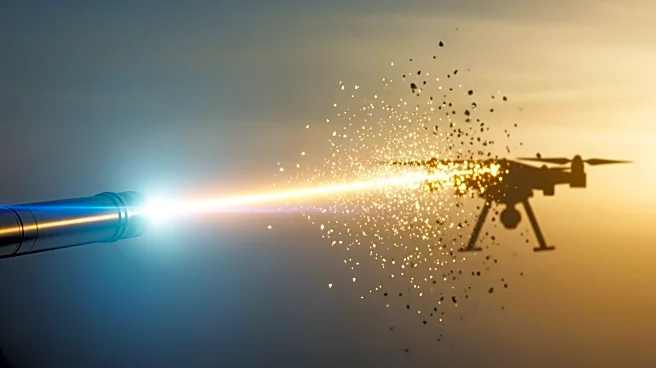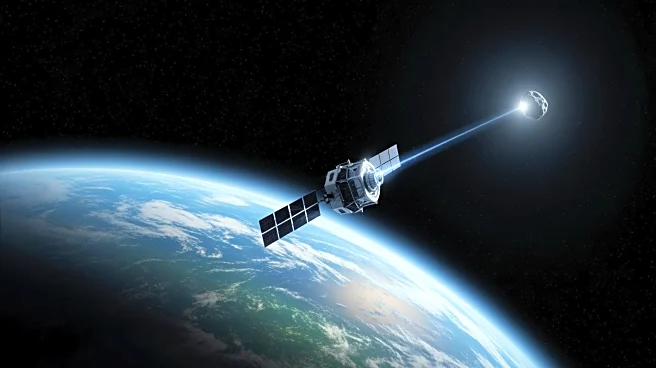What's Happening?
Recent Ukrainian drone attacks on Russian oil refineries have resulted in significant gasoline shortages across several Russian regions. These strikes have targeted key energy infrastructure, causing damage and disrupting production during peak demand periods. The attacks have led to record-high wholesale prices for gasoline, particularly affecting regions like the Far East and Crimea. In some areas, officials have resorted to rationing or halting sales altogether. The strikes are part of a broader strategy by Ukraine to exploit vulnerabilities in Russia's energy sector, coinciding with increased consumer demand as Russians travel for vacations and farmers harvest crops.
Why It's Important?
The gasoline shortages highlight a critical vulnerability in Russia's domestic energy supply chain, exacerbated by the ongoing conflict with Ukraine. The disruption in fuel availability has broader implications for Russia's economy, potentially affecting transportation and agricultural sectors. As gasoline prices soar, consumers face increased costs, which could lead to economic strain in affected regions. The situation underscores the evolving nature of drone warfare and its capacity to impact civilian infrastructure, raising concerns about future attacks and their potential to further destabilize Russian energy markets.
What's Next?
Russia has temporarily paused gasoline exports to mitigate the shortages, with plans to continue restrictions into September. Government meetings with oil company managers are ongoing to address the crisis. The gasoline shortfall is expected to ease by late September as demand decreases and refineries complete annual maintenance. However, the situation remains precarious, with potential for further exploitation of Russia's energy vulnerabilities by Ukraine. The effectiveness of these measures will be closely monitored, as Russia seeks to stabilize its domestic fuel supply amidst continued geopolitical tensions.
Beyond the Headlines
The drone attacks on Russian refineries could signal a shift in warfare tactics, emphasizing the strategic targeting of civilian infrastructure to achieve military objectives. This approach raises ethical and legal questions about the conduct of war and the protection of non-combatant resources. Additionally, the reliance on foreign parts for refinery repairs highlights the impact of Western sanctions on Russia's ability to maintain its energy infrastructure, potentially leading to long-term challenges in sustaining domestic production.








